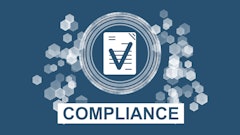
Dispatch is the heart of food logistics. Without a well-oiled dispatch department, the entire team stops moving. However, with the introduction of systems such as enterprise resource planning (ERP), it’s lending the ability to streamline the processes and allow dispatch to have a complete snapshot of the company at the push of a button. With up-to-the-minute reporting on all aspects of the industry, ERP systems are giving food logistics companies a new edge on the old transportation lines.
Centralize systems with an ERP
Gone are the days where multiple software systems were necessary to stay on top of load boards, mileage maps and driver hours. Instead of multiple systems, spreadsheets and manual calculations, ERP systems incorporate all of the necessary functions into one central hub, allowing for a company-wide view at real time by anyone in the company.
The ability to see the full picture from any branch of the company empowers employees and dispatch and ensures that short-term, costly mistakes aren’t getting in the way of the bottom line.
Contract administration made easy
No need for manual back-office functions to be performed with an ERP in place. You can get drivers paid, stop the human error component with the use of spreadsheets and manage assets with the same centralized hub. In addition to being allowed a full view of the customer requests and provisions in the contract, there is no guesswork when it comes to getting the load accepted, the driver being freed up to grab another trailer and hook up to the next load that will bring revenue and get the driver a few miles closer to your home terminal.
By utilizing a system that supports food logistic operations in this fashion, it makes critical mistakes that results in rejected loads less likely to happen, while ensuring that everyone from driver-to-driver management team to dispatch fully aware of the customer expectations, and helps to ensure that loads arrive on time, ready to be accepted and keep drivers paid and ready to get to the next load in need of delivery.
Safety, ERP and DOT
Safety and the DOT are major aspects of food logistics, with the ability to completely stall any movement if the records aren’t up to par and up to the moment. ERP software is an effective way to manage DOT recordkeeping and ensure that all of the safety functions required by the DOT are performed to specification. ERP software can be used in conjunction with driver operation software, and allows for driver records to be accessed and paired with load records, which is a great way for transportation dispatch to ensure that drivers and loads are legal and within the regulations of the bodies that govern food transportation.
Cost control
The ability to see the total product or project cost helps with long-term sustainability planning. With ERP systems, forecasting distribution hubs and the ability to accept and counter real-time freight bids is the reality that many dispatch departments have at their fingertips. Not only does a real-time bid system help by establishing market price for the current hauls listed in the system, but it also allows for the use of bidding in both a flat rate and fuel surcharge rate systems.
Reporting on such factors as distance, transitions and logistics paths allows the dispatch department to quickly identify the key components in the pricing configuration of external rates. Mileage maps and driver hours are easily tracked and paid in a system, as the human error element is virtually removed.
Orders to billing
Many ERP systems allow for paperless freight systems. A need for sustainable solutions and cost savings that aid in the reduction of waste are attractive points of many of the ERP systems in use by dispatch departments everywhere. A great number of freight companies offer paperless bill of lading and paperless billing solutions to their customers, and has made great strides in the green initiative being taken by some of the largest LDL trucking lines today.
Maintenance automation
With the automation of most other facets of the distribution of perishables, it is only natural that the maintenance aspect of the business would also become fully automated. Gone are the days of tracking work orders with spreadsheets and manual mileage tracking. With an ERP system, the machinery, trucks, loaders and trailers that are transporting perishables are handled with automatic work orders to service and inspect, and everything runs on a pre-determined maintenance schedule. Emergency work orders are routed automatically, with maintenance dispatched to the yard or terminal where the equipment is located to handle the repairs in an efficient manner.
In the event of an accident, the company is protected by having service records at their fingertips and driver safety records are simply a report away from being accessed by the appropriate authorities. ERP systems are moving food logistics into the future, assisting in sustainability and ensuring that loads move in a safe and efficient manner.


























